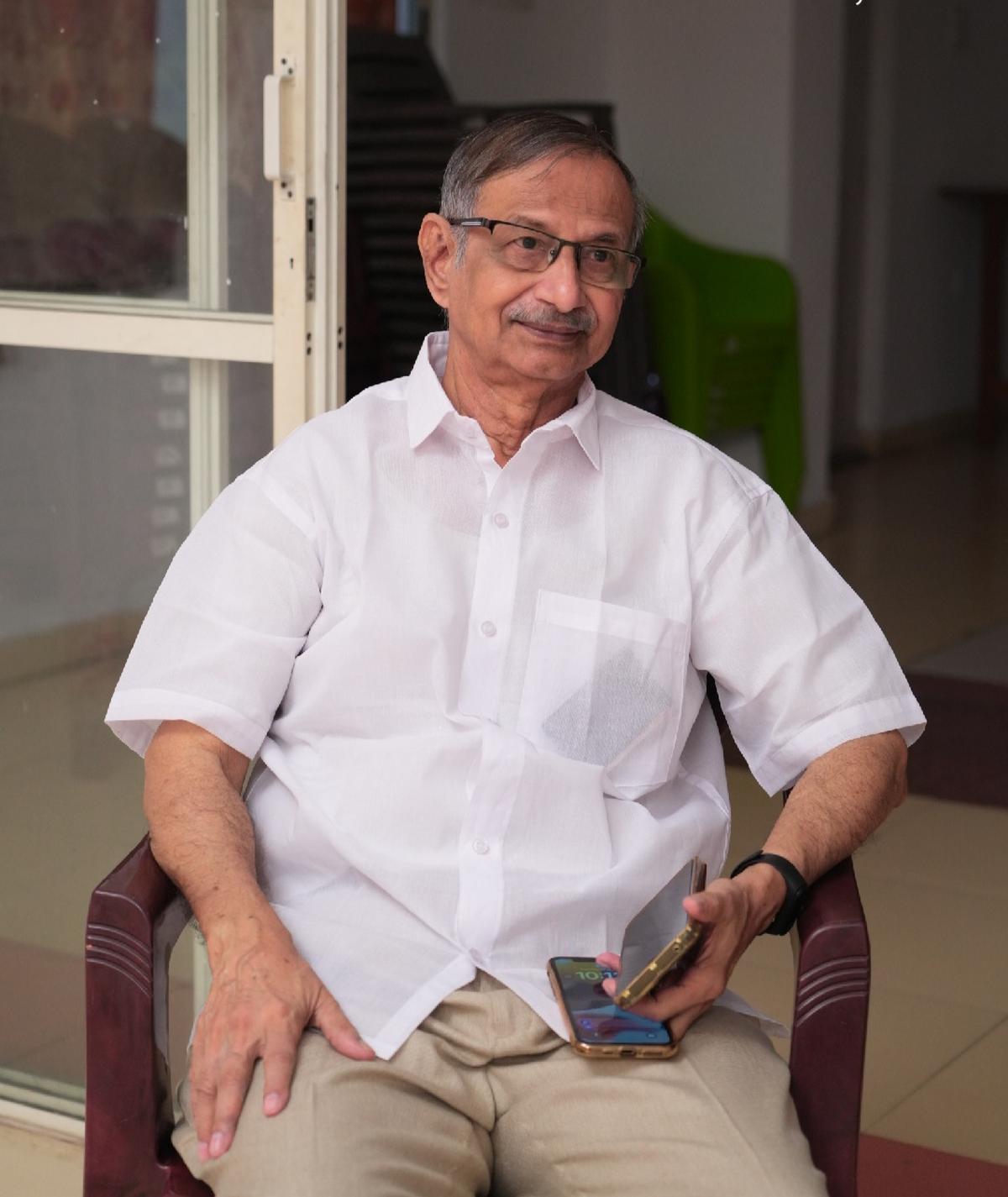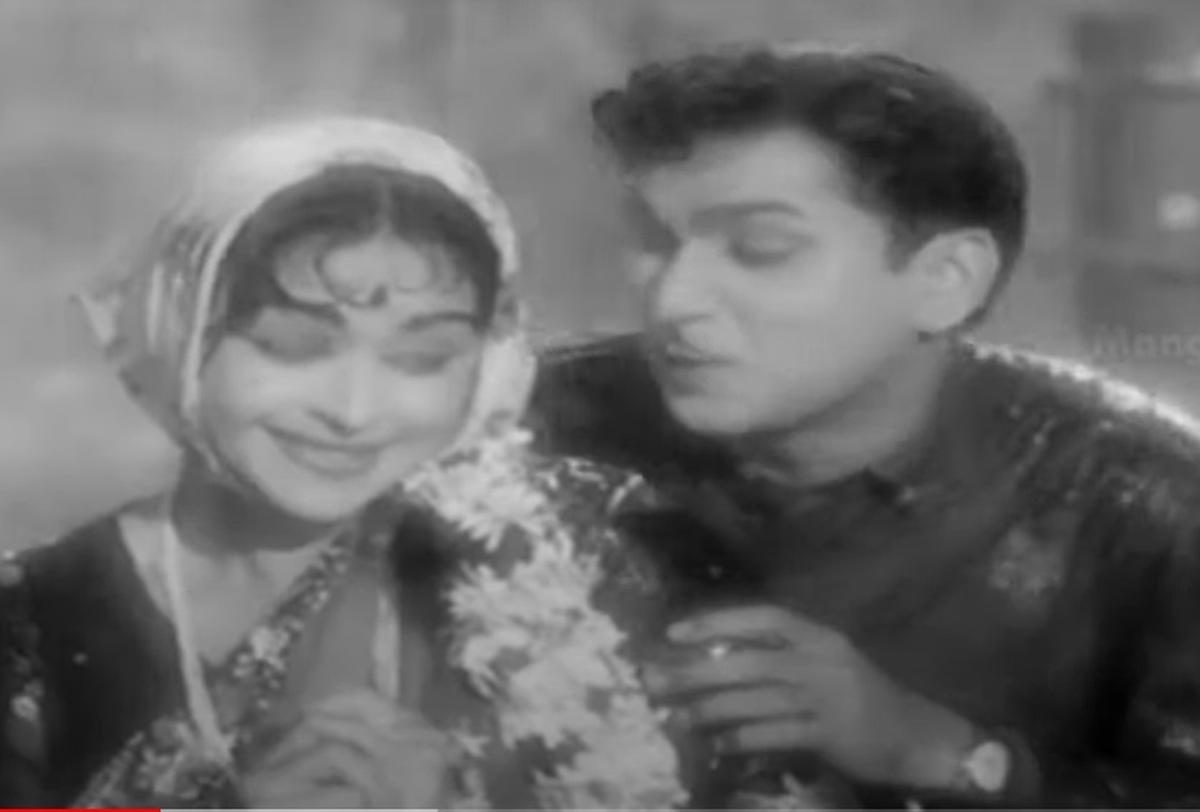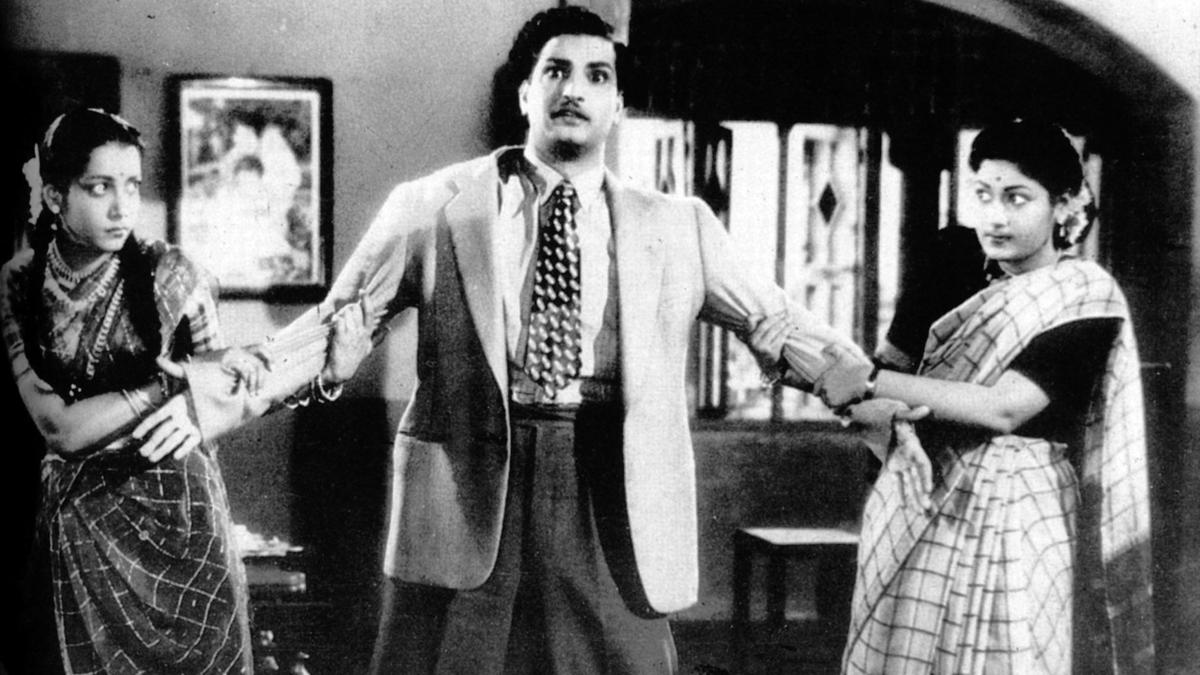Long before the Chiranjeevi-Vijayashanti song, ‘Vaana Vaana Velluvaaye’ from Gang Leader (1991) became a sensation, the ANR-B. Saroja Devi’s duet song ‘Chitapata Chinukulu Padutoovunte’ in Athma Balam (1964) beautifully captured the mysticism and romance of rain in Telugu cinema. If Saroja Devi’s appearance in a scarf during that popular rain song seemed unusual, there’s a story behind it; she was recovering from a head injury sustained while filming a Tamil movie, yet she bravely continued to shoot, covering the injury with flowers and a scarf. The song, composed by K. V. Mahadevan, written by Atreya, and sung by Susheela and Ghantasala, became a massive hit, setting a trend for rain songs in Telugu cinema.
Have you ever wondered what inspired lyricists to create those songs? Did the composer have a tune in mind first, or was the lyricist already armed with the words? Was the song born from a specific situation, or did a great composition naturally find its way into the film? So many such queries are addressed in Paata Venuka Bhaagotam, a book by veteran film journalist and author M.L. Narasimham.
The book Paata Venuka Bhaagotam
Paata Venuka Bhaagotam is a fascinating volume wherein the author meticulously explores the scenes and circumstances behind 60 songs that became iconic in Telugu cinema’s 90-year history. Published by B. Vishwanadha Reddy, aka Vishwam of Vijaya Publications, this 292-page book revives a series by the same name that originally appeared in the Telugu film magazine Vijayachitra between 1984 and 1985, by Narasimham, who was the editor in charge. He is also renowned for his popular Blast from the Past column he wrote for The Hindu for nearly three decades.
The song ‘Kurisindi Vaana Naa Gundelona’ from the 1972 film Bulemma Bullodu is an example of a hit song that doesn’t necessarily feature top stars. The song was picturized on Chalam, a versatile character actor and producer of the film, and Vijayalalitha, known for her villainous roles. The lyricist, Indukuri Ramakrishnamraju, aka Rajashri, had struggled to find the right words until a sudden rainstorm inspired him while staying at the Madras International Hotel on Mount Road, Chennai. The moment the skies opened up, the opening lines ’Kurisindi Vaana Naa Gundelona’ were born.

ML Narasimham
It is fitting that Narasimham begins his book with Missamma’s song, ‘Brindavanamadi Andaridi Govindudu…’ Released in 1955, the film starred NTR, ANR, Savitri, and Jamuna. The lyrics were by Pingali Nagendra Rao, and the music was composed by S. Rajeswara Rao. Sung by P. Susheela and A.M. Raja, the song became a sensation in Telugu cinema and surpassed expectations in its Tamil version, ‘Brindavanamum Nandakumaranum’ in Missiamma. A few years ago, a Chinese-Malaysian performer brought this song to life on stage, and her rendition went viral, earning worldwide acclaim. In the Hindi film Miss Mary, music director Hemant Kumar, while composing new tunes for the soundtrack was so captivated by ‘Brindavanamadi’ that he retained Rajeswara Rao’s original melody. The Hindi version, `Brindavan Ka Krishna Kanhaiya’, sung by Lata Mangeshkar and Mohammad Rafi, became a standout feature of the film.

If there’s one song that every contestant boldly attempts on music reality shows, it is ‘Shivashankari, Shivanandalahari…’ from the 1961 NTR-starrer Jagadeka Veeruni Katha. In this song, NTR portrays five distinct characters, each playing a unique instrument while singing. The lyricist crafted a devotional hymn in praise of Shakti, rich in literary depth. Composer Pendyala Nageswara Rao set it to the challenging blend of Darbari and Kaanada raga, from Hindustani and Carnatic traditions. The Telugu film was inspired by the 1944 Tamil classic Jagadala Pratapan.

ANR and B. Saroja Devi in the song ‘Chitapata Chinukulu Padutoovunte’ from Athma Balam.
| Photo Credit:
Special Arrangement
Ghantasala devoted an entire week to rehearsing this song, putting all other projects on hold. When it came time to record, he flawlessly delivered it in a single take. Contrary to the misconception that singer J.V. Raghavulu sang parts of the song, Narasimham clarifies that the rendition was entirely by Ghantasala. This was confirmed by the recordist, Vallabhajosyula Shivaram, who was present at Vauhini Studios during the recording. The tracks were skillfully layered to create the impression that five different voices were singing.
Paata Venuka Bhaagotam is a treasure trove for Telugu movie enthusiasts, with the author diligently gathering sources and anecdotes about each song. The lyrics printed at the end of each chapter evoke nostalgia, reminiscent of the days when one would purchase a Paatala pustakam (book of songs) outside theatres. “My connection to my employers, who also own Vijaya Productions, helped me source my content,” notes Narasimham. As a result, both the opening song, ‘Brindavanamadi Andaridi,’ and the closing track, ‘Laahiri Laahiri Laahirilo’, from the film Mayabazar (1957), are from the Vijaya Productions banner.
(Paata Venuka Bhaghotam, published by Vijaya Publications, Chennai. Pages 292; Price ₹300.)
Published – September 12, 2024 02:23 pm IST

